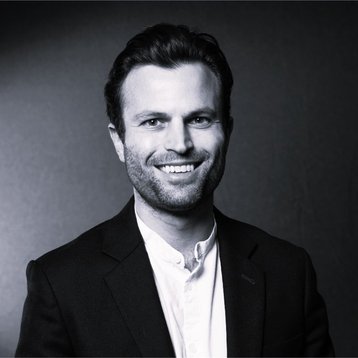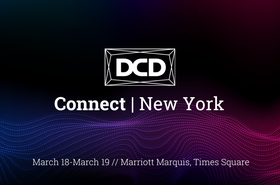Doug Miller, co-founder of Zero Labs, sat down for a Q&A with DCD's Matthew Welch to discuss the origin of his startup and its role as Sustainability Partner at DCD>Connect | New York (March 18-19).
Q: Great to have you as a Sustainability Partner for this event, Doug. Can you give us a quick introduction to Zero Labs?
A: Zero Labs is a clean energy software startup. We provide what we call digital clean-energy-as-a-service. I and the other founders met at a nonprofit, and we were looking at the role of advanced digital technologies, namely blockchain, that could support the energy transition.
Since we launched two years ago, we've helped increase global demand for clean energy by over 200,000 megawatt hours. To make that more understandable, that's the equivalent of about 20,000 US households since we launched.
We invited you to speak during the New Tech on the Block session at DCD>NY, and - after learning more about Zero Labs' work - we asked you to be our Sustainability Partner. Why was this event of interest to you when it comes to partnership?
Events are a space where lots of conversations happen, and new ideas meet one another. DCD>Connect | New York has a sustainability focus, and you are aware that you need to reduce your environmental impact and emissions.
What we offer is a solution to help reduce the emissions for the electricity use on your show floor, in your hotel rooms and hotel attendees’ stays.
We think that showing how we can help DCD decarbonize your event-related electricity use, will kick-start a conversation with other companies, which makes DCD>NY a great place to push the sustainability dialogue.
The data center industry is notorious for its energy usage. How is Zero Labs able to help its clients acquire clean energy?
Very simply, we help our partners, such as DCD, buy clean energy, digitize it, and report the proof with harmonized global data and deep traceability. This means we put the clean energy in a format that's electronically verifiable and more engaging for internal and external stakeholders.
This means that DCD owns the zero emission-related environmental claim from the US clean energy it secured and can show the proof to substantiate this claim digitally.
How you can display proof of purchase?
Just like when you go to the grocery store, you can see that there's an organic version of an apple or a non-organic version. There's essentially a label that's been added at the source about the contents of that product. There is a similar system in place for tagging a given unit of electricity as clean power, meaning it comes from a resource like wind, solar, geothermal, or hydro, that does not pollute carbon at the source.
There is an entire system in place where wind or solar product owners have to register themselves to participate in voluntary clean energy markets. The grid operator confirms how much that solar wind product produced, and based on that number, that's how many energy attribute certificates they have available to sell. So, it is one energy attribute certificate, known in the US as renewable energy certificates, per megawatt-hour of verified clean energy generation - akin to one organic label per apple to extend the analogy.
The current design and user experience in clean energy markets assume large annual purchases by large corporate buyers. Zero Labs’ technology makes it possible and easy to deliver right-sized energy attribute certificate claims and decarbonize the electricity used for any use case, no matter how small or large. We also make it easy to verify your clean energy claim.
What would you say to those that are skeptical, or may even accuse Zero Labs of greenwashing?
Let me provide some context to the problem that Zero Labs is trying to solve. The power sector and electricity generation is one of the largest sources of pollution. And we need a lot more financing to help pay for the new generators that power our grid without polluting carbon. But we can't instantly reduce emissions.
When you buy an energy certificate, you may not be changing the emissions right this second. Still, you are sending a market signal saying, “I'm going to buy clean energy, and I'm going to pay more to send that signal because I have a sustainability goal that I'm holding myself to and for which I can verify my claim because I have the data in the energy attribute certificate confirming my purchase.”
It's similar to when you go to the store and you buy organic apples. It's because you want to send that market signal that you want farming produced differently, that does less damage and is healthier for you. Similarly, when you buy clean energy, you are taking that proactive effort as a customer of the grid, which is pretty much the only thing we as customers can do.
While we acknowledge this may not solve everything, buying clean energy is a practical climate action that a company can do to decarbonize the power sector.
Where can we learn more about your work at Zero Labs?
We have joined DCD>NY as part of the New Tech on the Block Showcase on March 19th, and you can also find us at the Startup Zone on the event's showfloor. You can also scan our QR codes on signage to learn more, and see the Green Proof of DCD’s clean energy claim.
To meet more industry disruptors, register to attend DCD>Connect | New York (March 18-19), the ultimate in-person event for those who design, build and operate next-gen data centers.


